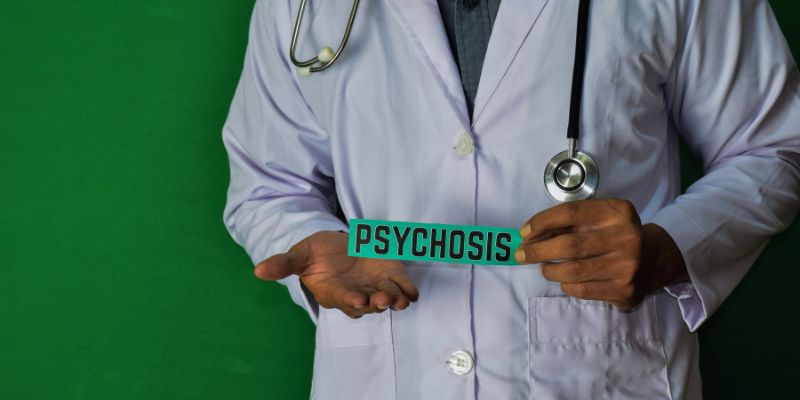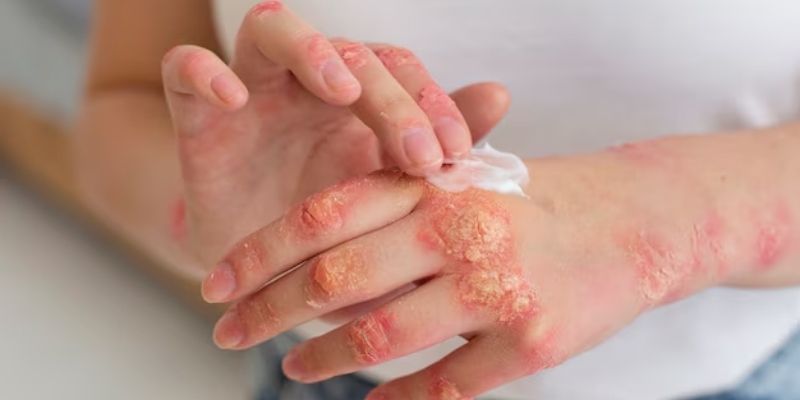One's mental health and daily life can be severely disrupted by psychosis. Early warning sign recognition is vital. Typical symptoms are hallucinations, delusions, and trouble thinking. Although these symptoms could start small, early intervention helps to prevent their aggravation. Early treatment reduces the possibility of severe consequences by increasing the chances of recovery. It can also help people to reclaim their quality of life.
Caregivers, families, and people themselves all depend on an awareness of psychosis and its early symptoms. Knowing when to ask for help can make a big impact. This article looks at possible therapies, advantages of early intervention, and psychotic symptoms. Early intervention helps to preserve general well-being and long-term mental health. Let's look at how seeing early warning indicators might alter the course of psychosis.

What is Psychosis?
A mental illness known as psychosis alters a person's reality perception. Often, it includes hallucinations and delusions. Hallucinations are experiences of seeing, hearing, or feeling something absent. False beliefs strongly held despite facts are known as delusions. People living with Psychosis could find it difficult to make judgments, think clearly, or interact properly. It can result from underlying mental disorders, including bipolar disease or schizophrenia. Other factors include medical diseases compromising the brain, major trauma, or medication abuse.
For the person going through psychosis, as well as for their loved ones, episodes can be quite upsetting. These episodes could cause uncertainty, anxiety, or a disengagement from everyday tasks. Management of psychosis depends on knowing its underlying causes. Early identification of symptoms—such as odd ideas or behavior modification—is crucial. Early identification and therapy assist people to recover stability and enhance their quality of life by lowering its long-term consequences.
Common Early Warning Signs of Psychosis
Usually, it starts with minor symptoms that could be difficult to detect. These early symptoms, sometimes referred to as the prodromal period, are where minute behavioral abnormalities could point to the beginning of psychosis.
- Social withdrawal: One of the earliest indicators is someone separating from friends and relatives. They could lose interest in past favorite activities or shun social events.
- Changes in behavior: Abrupt changes in mood, behavior, or routines are common. One may start acting differently—worried, irritated, or less driven.
- Confusion and concentration issues: Confusion and attention problems might arise from trouble following conversations, focusing, or information processing. The individual may be easily forgetful or distracted.
- Unusual beliefs: Early warning signals can develop odd, paranoid, or illogical ideas. Believing, for instance, that people have extraordinary powers or that they are being plotted against,
- Changes in perception: Signs that perception is starting to change could be a disconnection from reality or feeble sounds or voices.
Early recognition of these symptoms is crucial for a fast diagnosis and treatment, therefore preventing further severe psychotic episodes.
Effective Treatment Options for Psychosis
Usually, treating psychosis calls for support systems, therapy, and medication combined. Early treatment aims to assist the individual in restoring stability, lowering symptoms, and stopping the next episodes.
- Medications: Commonly recommended to help control symptoms like hallucinations and delusions are antipsychotics. These medications balance brain chemicals to provide effect. Medication choices by doctors depend on the patient's particular needs and response to therapy.
- Psychotherapy: Cognitive Behavioral Therapy (CBT) is one kind of therapy that enables people to question negative ideas and enhance their coping mechanisms. It aids individuals in controlling symptoms and handling daily tension.
- Family Therapy: Including family members in treatment might help to provide a supportive environment. Teaching people about psychosis helps to lower stress, improve understanding, and provide better individual treatment.
- Early Intervention Programs: For people displaying early psychosis, specialized clinics provide customized treatment. To increase results, these initiatives center on rapid diagnosis and treatment.

Why Early Detection Matters?
Early psychosis detection is crucial for improving outcomes and preventing long-term consequences. Symptom identification early on helps start treatment right away, lessening the severity of the illness. The longer psychosis continues untreated, the more difficult it can be to control, and a person's life suffers more. Early intervention can help prevent psychosis from interfering with relationships, employment, and schooling. It can also lower the likelihood of the next episodes, enhancing general stability.
Early onset of treatment increases a person's chances of recovering control over their thoughts and conduct. Early identification also helps to lower the stigma around mental health problems. It exhorts people to get treatment before their condition gets worse, therefore avoiding needless pain. People with psychosis can have a happy life with the correct therapy and help. Thus, early recognition of the warning signals and professional assistance sought can significantly affect the general quality of life and recovery.
How Early Action Can Reduce Long-term Effects?
Untreated psychosis can cause serious long-term effects, including damaged relationships, unemployment, and chronic mental health problems. Ignoring psychosis can also raise a person's risk of long-term disability and hospitalization. Effective management of the illness gets more challenging the longer it is untreated. Minimizing these hazards mostly depends on early intervention. Early phases of treatment can help to stop psychosis from getting worse by tackling symptoms.
It helps people maintain stable mental health and increase their capacity to operate socially and professionally, lowering the likelihood of the next episodes. Early acting not only enhances recovery results but also helps to lower the stigma associated with mental health problems. It motivates people to ask for help without thinking about judgment. Early on in treatment, psychosis does not define a person's life. Early action gives people an opportunity for greater results, enabling them to lead a happy and successful life.
Conclusion:
Preventing long-term effects depends on early recognition of psychotic symptoms and the quick treatment sought. Early identification can help people take control of their lives, lower the severity of symptoms, and increase chances for recovery. People can properly control psychosis with the correct treatment—which includes medications, therapy, and support systems. Early addressing of the illness not only lowers the likelihood of future episodes but enhances general well-being and social functioning. Acting quickly helps people with psychosis be happy and free from the stigma and restrictions that untreated psychosis can cause.






